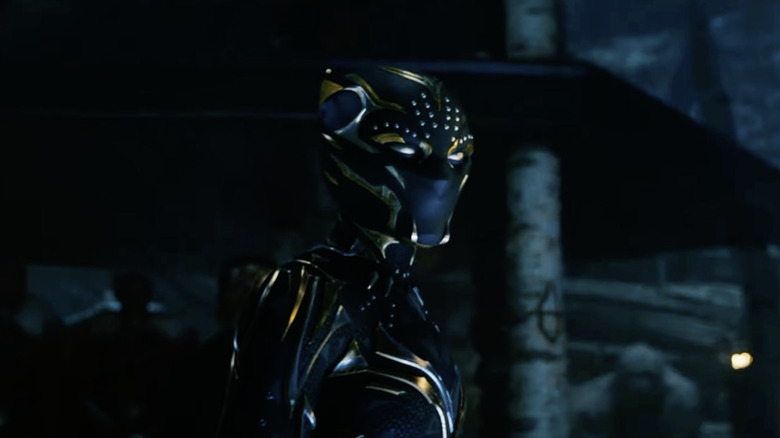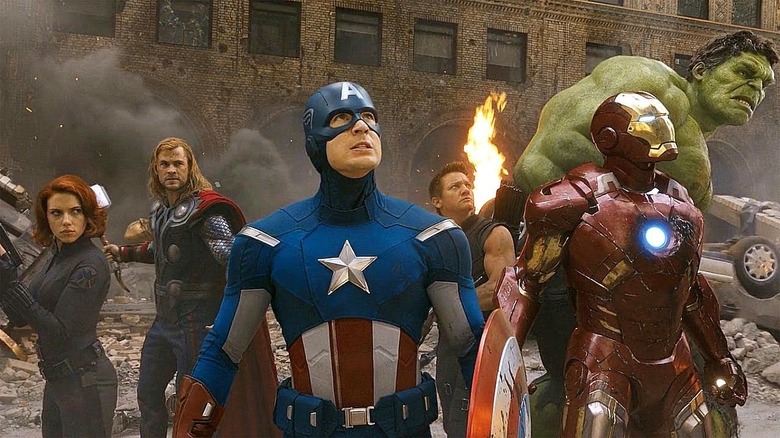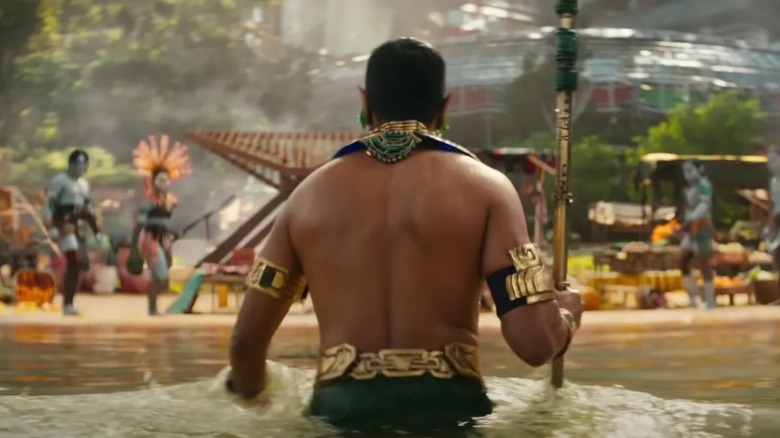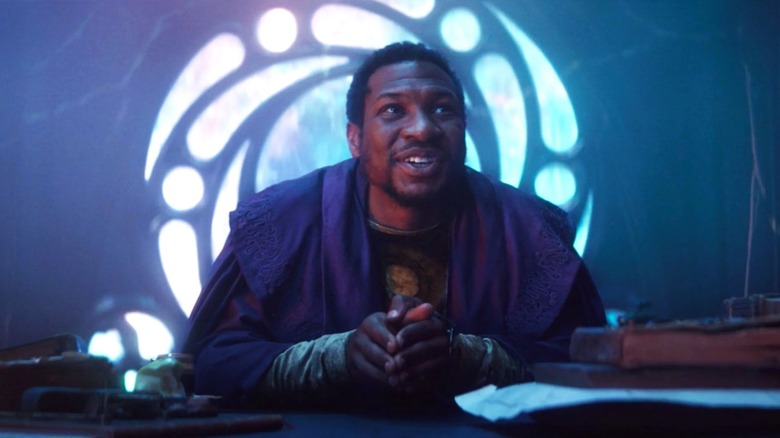Black Panther: Wakanda Forever Shows Marvel Can (& Should) Ditch The MCU's Cheesy Jokes
It has been roughly 14 years since "Iron Man" kickstarted the Marvel Cinematic Universe, an incredibly impressive cinematic turn spanning 30 films and numerous TV series. The lasting success of these movies, despite an incredible amount of oversaturation, speaks to Marvel Studios' ability to innovate and tell a wide array of different stories in their expanding multiverse. Some succeed more than others, but most MCU entries follow a strict formula that few filmmakers in their pantheon have been able to break through: set-ups for future films, expository dialogue/scenes, and a specifically cheesy sense of humor.
Sometimes the reliance on humor is understandably tied to the characters (what would Spider-Man be without his corny quips?), other times it feels forced and unnatural when applied to scenarios that require much more sincerity. Though the MCU is starting to evolve and center new, fresh faces, the humor of the universe always feels rigidly dated in a decade we've culturally left behind.
Though it is not free from its occasional studio-mandated trappings, "Black Panther: Wakanda Forever" feels like a refreshing change of pace. A large essence of this film's creation was to honor the late Chadwick Boseman and center its story on the nuances of grief, and director Ryan Coogler rightfully allows plenty of time for these characters to breathe. What Coogler struck was a perfect balance of drama/comedy that the rest of these films should follow.
MCU's humor is a relic from another decade
For better or for worse, a big part of the MCU's tone and stylistic identity has forever been imbued by Joss Whedon and his writing found in 2012's "The Avengers," the very first crossover film that defined the mold that the franchise continues to follow to this day. Whedon as an artist is highly symbolic of an era of nerd fandom we've culturally left behind; both in his snarky, meta and overbearing sense of humor that understandably worked at the time, and in his toxic, abusive behavior that was quietly enabled behind the scenes in his productions.
The original "Avengers" went onto be an incredible success story that proved that the mythology and source material Marvel pulls from was rich and exciting enough to be profitable to mainstream audiences. Naturally, the characteristic "Whedonspeak" banter would carry on to every film preceding "Avengers," trying to keep the MCU and its look and feel as homogenous as possible. If Iron Man is the sarcastic quippy action hero, then so is Doctor Strange. Levity and self-awareness are so distinctively "MCU," it permeates into the screenplays of these projects with studio note ease.
When it works, it gets a great reaction from the opening night audience. The problem is, many times, this trademark humor seeps into other projects and characters where it might not often mix. "Shang-Chi and the Legend of the Ten Rings" interjects a tragic backstory with an equally tragic and unfunny joke about airline food. "Thor: Love and Thunder" drowns the internality of Jane's mortality through screaming goats (a meme reference that's a few nine years too late). When comedy masks genuine character drama, it becomes a great detriment to the MCU's ability to emotionally connect.
Sincerity is what sold Namor to audiences
Though humor still manifests itself in "Wakanda Forever," it's much more subtle and situational. When Riri Williams develops a mechanism that detects Vibranium and screams at Okoye hiding in her bathroom, it's both hilarious to see her react, and it makes internal sense as to why she would freak out. When Okoye and M'Baku react to the warriors of Talokan riding on the back of Orca whales, it's funny to see these cynical characters witness something fantastical and odd, but there's no one-liner that breaks the majesty of these scenes.
In fact, one of the things that really sells "Wakanda Forever" is how earnestly it depicts one of the objectively outlandish characters to come out of the MCU in a while: Namor is a sea serpent god with pointed ears and winged feet. It wasn't that long ago that DC's Aquaman was the butt of the joke for being conceptually "lame" as a water-based superhero — and yet, Namor's presence in this film is regal and dignified, and when it comes down to it, incredibly threatening. His pain born from the horrors of colonialism fits the grief the Wakandan royal family face in the looming shadow of T'Challa's absence beautifully, and none of the characters feel the need to joke about the ridiculousness of underwater people for us to buy into his presence.
Coogler's approach to "Wakanda Forever" proves that a little more sincerity can help open up more doors for the MCU and the way it approaches its source material. As Marvel and comics fandom as a whole becomes popular culture, there's no need to ease audiences into the absurdity of this world any longer.
Is the light-on-humor tone of 'Wakanda Forever' a one off thing?
It might be too early to tell, but the specific conditions into which "Wakanda Forever" was made and the tone it was trying to achieve might be the biggest factors as to how this film ended up light in the comedy department. Our next film is "Ant-Man and the Wasp: Quantumania," which will be a quick return to form for the MCU right after the innovations and flourishes Coogler added to this "Black Panther" sequel.
Given that "Quantumania" will have Jonathan Majors' Kang the Conqueror at center-stage, we can expect this third "Ant-Man" movie to have a drastic impact on the future of Marvel media going forward, all tying up to its "Multiverse Saga" plans which will lead into the next round of "Avengers" films.
Marvel is weaving a large tapestry of connections, so it makes sense why they stick to a formula that works for them, but here's hoping they look at what they accomplished with Namor and Talokan and approach the franchise's future sense of humor with a little more thought and care.



